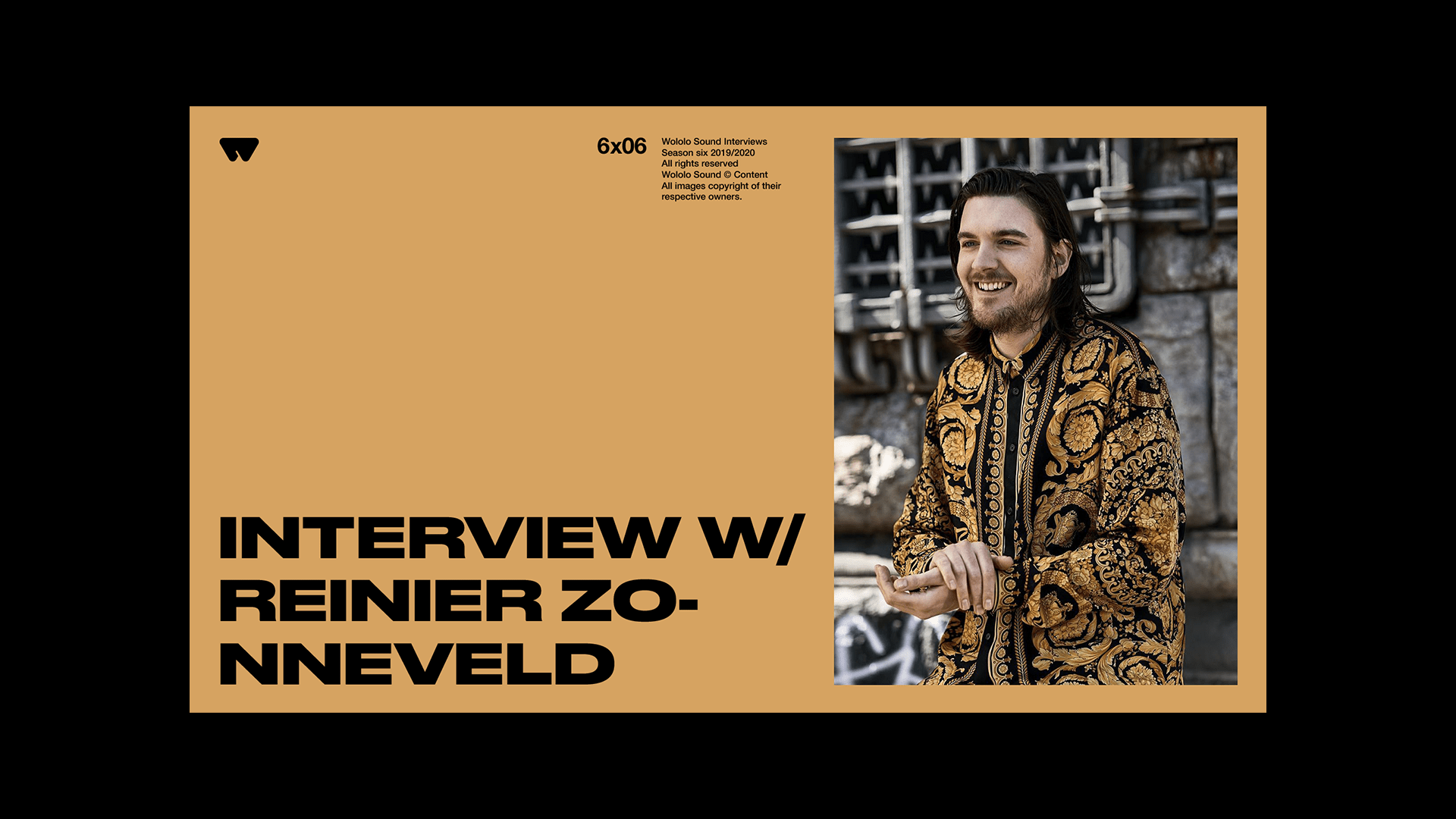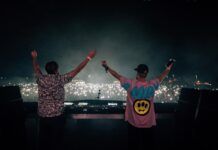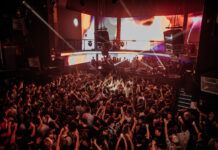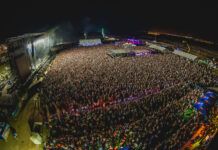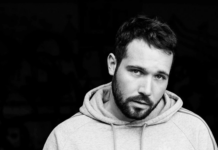Entrevistamos a Reinier Zonneveld, uno de los artistas techno del momento
WS: Hola Reinier! Muchas gracias por atender a nuestro medio en España. Primero de todo vamos a empezar hablando de tus orígenes, ¿cómo y cuando entró Reinier Zonneveld en la escena de la música electrónica?
RZ: ¡Gracias por la invitación! He estado haciendo y pinchando música básicamente toda mi vida, empezando con el piano alrededor de los 3 años. Solía toquetear un poco el tema de la producción de música electrónica cuando era niño, con la primera versión de Reason, pero nada demasiado serio. Más tarde, cuando me mudé de casa de mis padres para estudiar en otra ciudad, fui a mi primera fiesta techno (cuando el minimal se estaba haciendo grande) y lo supe de inmediato: esto es lo que quiero hacer. Así que comencé a producir y trabajé en un liveset. Empecé a pinchar cuando tenía 16 o 17 años, así que eso fue hace unos 11 años.
WS: Hello Reinier! Thank you very much for attending our media in Spain. First of all let’s start talking about your origins, how and when did Reinier Zonneveld enter in the electronic music scene?
RZ: Thank you for the invite! I’ve been making and playing music all my life basically, starting out with piano around 3 years of age. I used to play around here and there with electronic music production as a kid, with the first version of Reason, but nothing too serious. Later, when I moved out of my parents place to study in another city, I went to my first techno party (back when minimal was getting big) and knew immediately: this is what I want to do. So I started to produce and worked on a liveset. I started to DJ when I was 16 or 17, so that is about 11 years ago now.
WS: Actualmente tu carrera va viento en popa; tu live es considerado uno de los mejores del momento, has colaborado con artistas como Carl Cox, estás pinchando alrededor del mundo y tu sello está en un gran momento. ¿Cómo ves tu carrera ahora mismo? ¿Qué planes tienes para el futuro?
RZ: Estoy muy feliz ya que puedo hacer lo que más me gusta: hacer música y compartir esa música con el mundo. Es increíble ver a tanta gente feliz alrededor del mundo mientras compartes tu música y funciona como una gran motivación para seguir haciendo lo que tú haces también. Estoy sorprendido de dónde estoy ahora y mi plan para el futuro es continuar; seguir con mis livesets, crear música nueva todo el tiempo y seguir trabajando para compartir la música que amo en Filth on Acid.
RZ: I’m super happy that I’m able to do what I love most: making music and share that music with the world. It’s incredible to see so many happy people all around the world while sharing your music, and it works as a great motivation to keep doing what you do too. I’m amazed at where i am now and my plan for the future is just to go on; playing live, creating new music all the time and keep working to share music I love on Filth on Acid.
WS: Hablando de tu live set, ¿qué te hizo pasar a este formato en lugar de un set de DJ normal? ¿Cómo lo preparas?
RZ: En realidad, el primer show que hice fue en formato live y siempre me he centrado en eso. Un par de veces al año podría hacer un b2b pero normalmente siempre toco en vivo. Me encanta actuar así porque me permite combinar las dos cosas que más me gustan; hacer música y pinchar al mismo tiempo. Es una sensación mágica el conectarse con las personas a través de la música y además de eso me permite hacer muchas cosas que son imposibles de hacer como DJ, como reproducir una melodía que escuchas en tu cabeza cuando combinas los dos últimos tracks y al tocar eso a través de un sintetizador en vivo en el escenario parece que la música evoluciona orgánicamente de esta manera. El live set que uso ahora se ajusta todo el tiempo, todas las semanas hago nueva música en el estudio, en mi habitación del hotel o en el avión y agrego las partes que necesito para poder probarlo. Las partes y los archivos están ubicados cronológicamente y, como los uso todo el tiempo, recuerdo dónde están más o menos las pistas.
Esto me permite tener un catálogo de música realmente grande en el set, abarca ahora aproximadamente medio terabyte en mi disco duro. La forma habitual de trabajar es cuando creo una nueva pista, grabo una versión sin batería ni sintetizadores, pero con los efectos de kick, bajo y sonido. Masterizo esta pista, y es “una pista de respaldo” para usarla en vivo. Luego lo muevo a mi liveset y pongo, si es necesario, algunos loops / samples de batería especiales en maschine y el MIDI de los sintetizadores (y un preset si es necesario). Cuando lo toco, comienzo la pista de acompañamiento, pero puedo ajustar la melodía de los sintetizadores, el timbre y todos los drums en vivo, sin el uso de un loop. En Maschine y Ableton ejecuto complementos VST que puedes manipular sobre la marcha. Además de eso, siempre uso un Roland TB303 (principalmente un clon para viajar), una tarjeta de sonido de alta calidad, un portátil y un XONE 92 para mezclar (puedo enviar todas las señales a todos los canales que quiera en el mezclador usando atajos en mi teclado). Si el espacio y los viajes lo permiten, me encantaría traer más equipo de estudio, principalmente el Roland TR909, TR606, SH101, Moog Sub 37, Vermona DRM1 MK3 original, etc.
WS: Speaking of your live act, what made you move to this format instead of a normal DJ set? How do you prepare it?
RZ: Actually the first “official” gig i did was already a liveset, and i’ve been always focused on that. A couple of times per year I might do a surprise B2B DJing but normally I always play live. I love to play like this because it enables me to combine the two things I like the most: making music and performing at the same time. It is a magical feeling to connect through music with people, next to that it enables me to do a lot of things that are impossible to do as a DJ, like writing a melody that you hear in your head when you combine the last two tracks and playing that through a synthesizer live on stage. It feels like the music evolves organically this way. The liveset I use now gets adjusted all the time, every week I make new music in the studio, in my hotel room or in the plane and I add the parts I need to it so I can try it out. The parts and files are chronologically placed and because I use them all the time, I remember where the tracks are more or less.
This enables me to have a really big catalogue of music in the set, it spans now about half a terabyte on my HD. The usual way of working is when I create a new track, I record a version without the drums and synthesizers, but with the kick, bass and sound effects. I master this track, and it is “backing track” for using it live. I then move it into my liveset, and put in if necessary some special drum loops/samples in maschine, and the MIDI from the synthesizers (and a preset if necessary). When i play it out i start the backing track, but i can adjust the melody of the synths, the timbre and all the drums completely live, without the use of a loop. In maschine and ableton i run VST plugins which you can manipulate on the fly. Next to that, I use always a Roland TB303 (mostly a clone for travelling), a high quality soundcard, laptop and a XONE 92 for mixing (i can send every signal to every channel i want on the mixer using shortcuts on my keyboard). If space and travel allows i love to bring in some more studio equipment, mainly the original Roland TR909, TR606, SH101, Moog Sub 37, Vermona DRM1 MK3 etc.
WS: Recientemente has pinchado en Awakenings y por partida doble en nuestro país, en Barcelona y Guijón. ¿Qué tal ha sido la experiencia? ¿Qué opinas de nuestro público?
RZ: ¡Me encanta! Recientemente he pinchado también en Fabrik (Madrid) y Sala Sonora (Bilbao). Volveré para el Brunch In The Park de Barcelona y en Mondo en Agosto. El ambiente es genial, me encanta la gente y por supuesto el tiempo, es muy bueno.
WS: Recently you have played at Awakenings and twice in our country, in Barcelona and Gijón. How has the experience been? What do you think of our audience?
RZ: I love it! Recently i played also at Fabrik Madrid and Sala Sonora Bilbao. I’ll be back for Brunch in the Park Barcelona and Mondo Madrid in August. The vibe is great, I love the people and of course the weather, is very good 🙂
WS: Hablemos ahora de ‘Church of Clubmusic’, el cual nos encanta, es tu tercer álbum de estudio, ¿cómo ha sido el proceso de producción? Te hemos visto tocando varios estilos, ¿cuáles fueron tus influencias?
RZ: ¡Gracias! Con este álbum quería mostrar un sonido más diverso, una visión general de la música electrónica que me gusta escribir y producir, y no necesariamente tocar. La idea era crear algo que sea un viaje a través de todos estos estilos, sin dejar de ser una historia coherente para escuchar en todo momento. Pasé mucho tiempo seleccionando pistas para el álbum y luego reemplazando pistas una y otra vez. Estoy muy contento con cómo resultó, y recibí muchos comentarios positivos. Algunas pistas del álbum son remakes de canciones de 10 años, otras tienen solo medio año. Tuve control total sobre toda la producción, desde escribir, producir, mezclar y masterizar (vinil), lo hice yo mismo. Realmente me encanta esta forma de trabajar porque además de tener un control total sobre el sonido final, también me gusta trabajar en los detalles del sonido. Me influye todo lo que me rodea, toda la música que escuchas en la vida, todas las cosas que pasan contigo y a tu alrededor. Todo se suma a lo que haces. Por lo tanto, es difícil para mí determinar las influencias exactas, pero en la música electrónica 2 artistas que realmente amo son Carl Cox y Moby.
WS: Let’s talk now about ‘Church of Clubmusic’, which we love. It is your third studio album, how was the production process? We have seen you playing various styles, what were your influences?
WS: Thanks! With this album I wanted to showcase a more diverse sound, an overview of electronic music I like to write and produce, and not necessary play. The idea was to create something that is a trip through all this styles, while still keeping it a coherent story to listen to throughout. A lot of time went into selecting tracks for the album, and then replacing tracks on and on. I am really happy with how it turned out, and I got a lot of positive feedback. Some tracks on the album are remakes of 10 years old tracks, other’s are just half a year old. I had full control over the whole production, everything from writing, producing, mixing and (vinyl-) mastering I did myself. I really love this way of working because next to having full control over the final sound, I also really like to work on the details in the sound. I get nfluenced by everything around me, all the music you hear in life, all the things that happen with you and around you. It all adds up into what you make. So it is hard for me to pinpoint exact influences, but in electronic music 2 artists i really really love are Carl Cox and Moby.
WS: Tras estrenar este álbum, ¿te tomarás un descanso del estudio? ¿cuáles son tus planes actuales?
RZ: ¡No quiero tomar un descanso! En todo momento tengo una buena melodía en mi cabeza o una idea para un track, me sumerjo en el estudio y empiezo a grabar. Actualmente estoy planeando lanzar una nueva series de EPs después del verano, que son 100% creados alrededor de la música que uso en mis livesets; dirigida a la pista de baile.
WS: After releasing this album, will you take a break from the studio? What are your current plans?
RZ: I dont want to take a break! Everytime I have a nice melody in my head or idea for a track, I grab my laptop or if possible, dive to the studio and start recording. Actually, I’m planning on releasing a new series of EPs after summer, that are 100% build around the music I use in my livesets; aimed for the party dancefloor.
WS: Turno ahora para tu sello; Filth On Acid el cual está en una gran forma y te damos la enhorabuena. ¿Cómo fueron los primeros días del sello? ¿Cómo te sientes al ver su progreso? ¿Tú mismo eliges los temas que aparecen en el?
RZ: ¡Gracias! Es una locura lo rápido que Filth on Acid pasó de la nada a lo que es ahora. Soy dueño del sello junto a mi buen amigo y ahora también gerente Axel, y él trabaja principalmente en la parte posterior del sello. Pero discutimos todo lo que hacemos en Filth on Acid para hacer nuevos planes y nuevas ideas. Todos los A&R finalmente los hago yo mismo, así que escucho las demos que tenemos y decido qué lanzar al final. En los primeros días del sello, básicamente ya nos estábamos preparando mucho antes del lanzamiento real en febrero de 2017, tuvimos algunos problemas con el lado práctico del mismo. No queríamos reducir la calidad en ningún aspecto. Por ejemplo, toda la obra de arte está dibujada a mano por un artista profesional. Pero financieramente un sello solo cuesta dinero hasta el punto en el que realmente estás consiguiendo reproducciones y vendiendo mucha música. Invertimos todo el dinero que teníamos para hacer lo que queríamos hacer con Filth on Acid, lo cual fue bastante estresante pero eventualmente muy gratificante y estamos contentos de haberlo hecho. La música fue muy bien recibida desde el primer lanzamiento. Para mí, lo más especial es que muchos grandes artistas deciden enviarnos demos, y puedo elegir muchas pistas originales de gran calidad para lanzar, y que junto con los artistas que hay ahora existe realmente un “sonido Filth on Acid”, el cual es diferente de los otros sellos. Algunos aspectos destacados increíbles son las colaboraciones que hice en Filth on Acid, especialmente trabajar con Carl Cox en tracks juntos es algo increíble y estoy extremadamente agradecido por ello.
WS: Time now for your label: Filth On Acid which is in a great form and we congratulate you. How were the first days of the label? How do you feel when you see his progress? Do you choose the themes that appear in it?
RZ: Thank you! It is insane how fast Filth on Acid went from nothing to were it is now. I own the label together with my good friend and now also manager Axel, and he mainly works on the backside of the label. But we discuss everything we do on Filth on Acid to make new plans and new ideas. All the A&R I ultimately do myself, so I listen to the demos we get and decide what to release in the end. In the first days of the label – basically we were already preparing way ahead of the actual launch in february 2017 – we had some trouble with the practical side of it. We didn’t want to cut any corners in quality. For example, all the artwork is hand drawn by a dedicated artist. But financially a label only costs money until the point where you’re really streaming / selling a lot of music. We invested all the money we had to do what we wanted to do with Filth on Acid, which was pretty stressful but eventually very rewarding and we are glad we did it. The music got picked up very well from the very first release. For me the most special thing is that so many great artist decide to send us demos, and I can pick so many good original tracks for releasing – and that together with the artists there is now really a “Filth on Acid sound” that is different from the other labels. Some incredible highlights are the collaborations I did on Filth on Acid. Especially working with Carl Cox on tracks together is something unbelievable and I’m extremely thankful for that.
WS: Antes nombrabamos a Carl Cox, quien hace poco dijo que el EDM ha ayudado en gran parte al resurgimiento del techno, ¿qué piensas acerca de esto?
RZ: Creo que esta declaración tiene mucho sentido, muchas personas que comienzan a escuchar EDM pueden aburrirse de eso y comenzar a buscar cosas nuevas. Paso a paso, explorarán nuevos estilos y muchos de ellos eventualmente comenzarán a introducirse en el techno (u otros estilos underground).
WS: Before, we talked about Carl Cox, who recently said that EDM has helped a lot in the resurgence of techno, what do you think about this?
RZ: I think this statement makes a lot of sense, a lot of people who start listening to EDM might get bored of that and start looking for new things. Step by step they will explore new things and a lot of them will eventually start getting in to techno (or other underground styles).
Preguntas cortas/Short questions
WS: ¿Ciudad dónde vivir? / A city to live?
RZ: Amsterdam
WS: ¿Comida favorita? / Favourite food?
RZ: Ramen
WS: Club or festival?
RZ: Ambos, preferiblemente un club después de un festival || Both, preferably a club after a festival
WS: ¿Mejor club en el que has estad? /Best club you have been in?
RZ:Muchos muy buenos para elegir un favorito (suena como una respuesta tonta pero realmente es así) || Too many good ones to pick a favorite (sounds like a silly answer but I really mean it)
WS: ¿Canción favorita del momento? / Fav song of the moment?
RZ: Los mismo que con los clubs || Same as clubs
WS: ¿Un artista con el que compartir estudio? /An artist to share studio?
RZ: Mees Salomé
WS: ¿Una canción que no sea electrónica? / A non electronic song?
RZ: Erik Satie – Gnossienne 5


